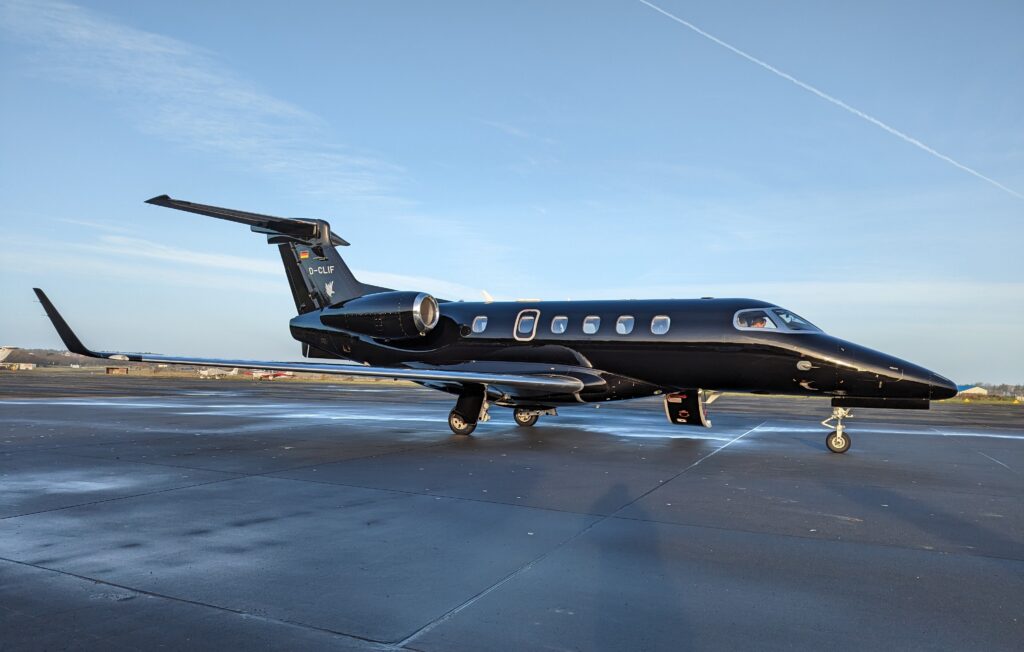Overview
The growth of private aviation
Private aviation has experienced strong demand in recent years, with more and more individuals and businesses opting for the convenience and luxury of flying privately. This growth can be attributed to a number of factors, including the increasing affordability of private aircraft, the rise of on-demand charter services, and the desire for personalized travel experiences. As a result, the private aviation industry has seen a significant expansion, with new players entering the market and existing companies expanding their fleets. The future of private aviation looks promising, with continued growth and advancements in technology driving the industry forward.
Advancements in private aircraft technology
Private aviation has experienced significant advancements in technology, revolutionizing the way people travel. From faster and more efficient aircraft to state-of-the-art avionics systems, these advancements have made private flying more accessible and convenient than ever before. One notable example is the Skyservice growth in South Florida, which has seen a surge in demand for private aviation services. With its luxurious facilities and top-notch customer service, Skyservice has become a preferred choice for discerning travelers in the region. This growth is a testament to the increasing popularity of private aviation and the continuous innovation in the industry.
Benefits of private aviation
Private aviation offers numerous benefits that make it an attractive option for individuals and businesses alike. Flexibility is one of the key advantages, as private aircraft allow passengers to choose their own schedule and destinations. Additionally, private aviation provides privacy and comfort, ensuring a stress-free and enjoyable travel experience. Another significant benefit is the ability to avoid crowded airports and long security lines, saving valuable time. Furthermore, private aviation allows for direct flights to remote locations that are not easily accessible by commercial airlines. Overall, private aviation offers a convenient, efficient, and luxurious way to travel.
The Rise of Fractional Ownership
What is fractional ownership?
Fractional ownership is a unique concept that allows individuals to own a share of an aircraft, providing them with all the benefits of private aviation without the high costs. It works like a timeshare, where multiple owners share the costs and usage of the aircraft. This model has gained popularity in recent years as it offers a more affordable and flexible alternative to owning a private jet outright. Instead of dealing with the expenses of purchasing, maintaining, and storing an entire aircraft, fractional owners can enjoy the luxury of private aviation without the expensive airport fees.
Benefits of fractional ownership
Fractional ownership offers a range of benefits that make private aviation more accessible and cost-effective. With fractional ownership, individuals can enjoy the perks of owning a private aircraft without the full financial burden. Flexibility is a key advantage, as owners can choose the size and type of aircraft that best suits their needs for each trip. Additionally, fractional ownership provides access to a global network of private aircraft, allowing owners to fly to various destinations with ease. This ownership model also comes with shared maintenance and operational costs, reducing individual expenses. Overall, fractional ownership is revolutionizing the private aviation industry by offering a convenient and affordable way to experience the luxury of flying privately.
The future of fractional ownership
As private aviation continues to evolve, one exciting development is the rise of fractional ownership. This innovative model allows individuals to own a share of an aircraft, providing all the benefits of private aviation without the cost and responsibility of full ownership. Fractional ownership offers flexibility, convenience, and access to a wide range of aircraft options. The future of fractional ownership looks promising, with advancements in technology and the emergence of new players in the market.
The Impact of Electric Aircraft
Advantages of electric aircraft
Advantages of electric aircraft include lower operating costs, reduced noise pollution, and environmental sustainability. Electric aircraft have the potential to revolutionize the aviation industry by offering a cleaner and more efficient mode of transportation. However, there are still challenges to overcome, such as limited battery capacity and the need for a robust charging infrastructure. Despite these challenges, the future of electric aircraft looks promising, with major advancements and investments from companies like Honeywell’s outlook on global business aviation for 2023.
Challenges and solutions
As the private aviation industry continues to evolve, it is not without its challenges. One of the key challenges is meeting the global business jets demand. With the increasing number of high-net-worth individuals and growing business opportunities around the world, there is a rising need for private aircraft that can cater to the demands of global travel. However, the industry is actively working on finding solutions to address this demand and ensure that there are enough private jets available to meet the needs of discerning travelers.
The future of electric aircraft
As electric aircraft continue to gain momentum, they are set to revolutionize the private aviation industry. With their numerous advantages, such as lower operating costs and reduced carbon emissions, electric aircraft are attracting the attention of both aviation enthusiasts and environmentalists. However, there are still challenges to overcome, including limited range and the need for infrastructure development. Despite these obstacles, the future of electric aircraft looks promising, with advancements in battery technology and the growing commitment to sustainability.
The Role of Artificial Intelligence in Private Aviation
AI-powered flight planning and navigation
AI-powered flight planning and navigation is revolutionizing the private aviation industry. With advanced algorithms and machine learning capabilities, AI systems can analyze vast amounts of data to optimize flight routes, reduce fuel consumption, and improve overall efficiency. These intelligent systems can also consider various factors such as weather conditions, air traffic, and aircraft performance to ensure safe and smooth journeys. The future of AI in private aviation looks promising, as more companies are investing in AI technologies to enhance the travel experience for passengers and streamline operations for airlines and pilots.
Enhanced safety and efficiency
Enhanced safety and efficiency are key benefits of incorporating Artificial Intelligence (AI) in private aviation. AI-powered systems can analyze vast amounts of data in real-time, allowing for more accurate and proactive decision-making. From predictive maintenance to intelligent route optimization, AI can significantly enhance the safety and efficiency of private aircraft operations. By automating routine tasks and providing real-time insights, AI technology can help pilots and operators make better-informed decisions, ultimately leading to smoother and more efficient flights.
The future of AI in private aviation
As the private aviation industry continues to evolve, the role of Artificial Intelligence (AI) is becoming increasingly important. AI-powered flight planning and navigation systems are revolutionizing the way private aircraft operate, ensuring enhanced safety and efficiency. These advanced systems analyze vast amounts of data in real-time, allowing pilots to make informed decisions and optimize routes. Furthermore, AI is driving the development of innovative technologies that address the steady demand for business jets. With AI, private aviation is poised to enter a new era of growth and convenience.
Artificial Intelligence (AI) has revolutionized various industries, and private aviation is no exception. The Role of Artificial Intelligence in Private Aviation is becoming increasingly significant, as it offers numerous benefits and advancements. AI-powered systems can enhance safety measures by analyzing vast amounts of data in real-time, predicting potential risks, and providing proactive solutions. Additionally, AI can optimize flight routes, reduce fuel consumption, and minimize operational costs. Virtual Hangar, the leading platform in private aviation, leverages AI technology to provide seamless and efficient services to its customers. With Virtual Hangar, you can book a flight instantly with just a tap, and enjoy the best prices in the market for your favorite private jet. Become a member today and experience the convenience and luxury of private aviation with Virtual Hangar.





